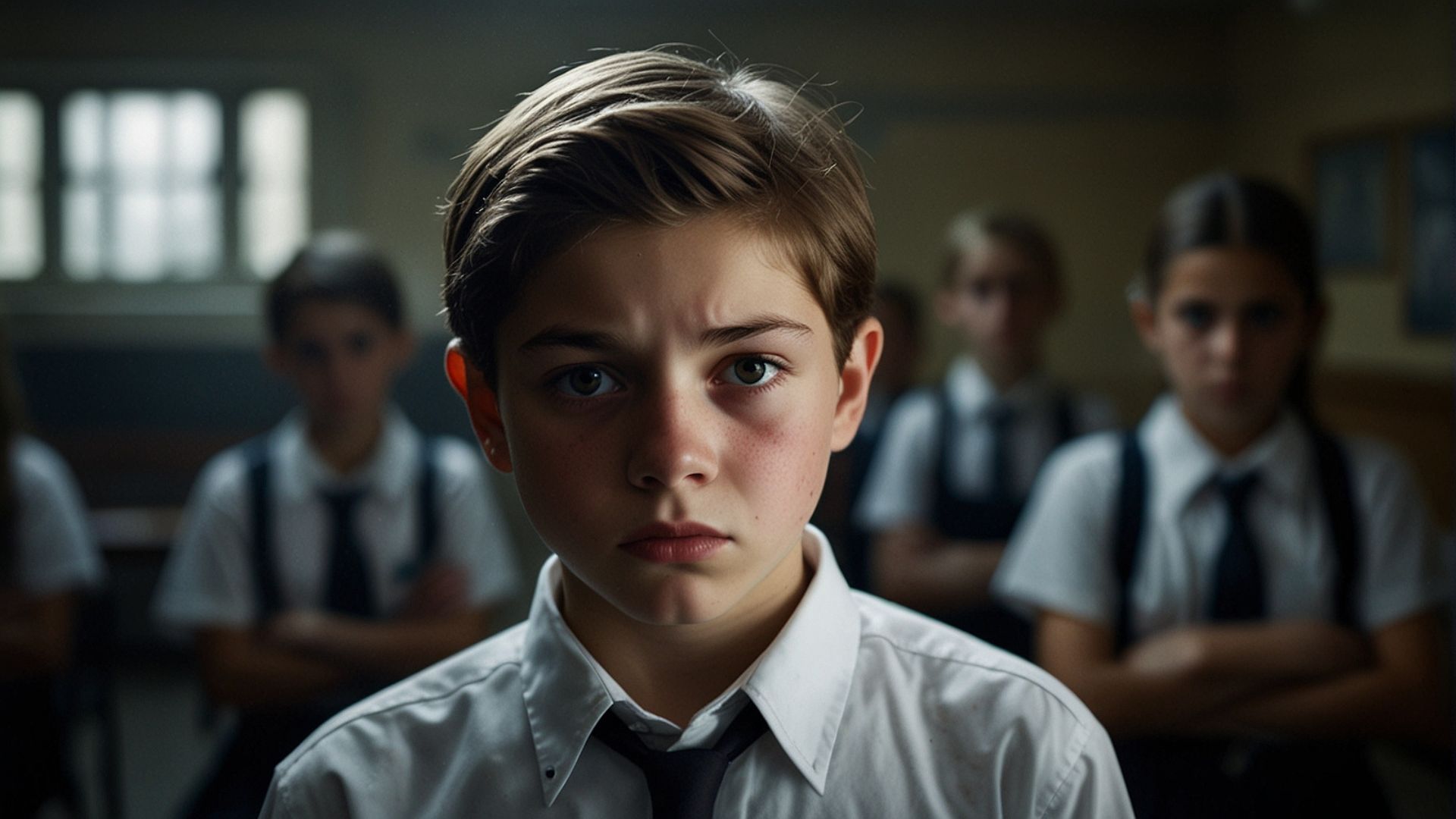Imagine yourself back in school. Maybe you were the popular kid, or perhaps you were quiet and kept to yourself. Either way, chances are high that you witnessed bullying, or maybe even found yourself a target. Schoolyard taunts and locker room shoves might seem like an unavoidable part of growing up, but the truth is far more devastating. Bullying is not just kids being kids; it’s a form of abuse with serious, long-term consequences.
The Bruises You Can’t See
When a kid gets a black eye, we instantly understand the seriousness. But bullying damages far more than just skin. It can leave internal scars – anxiety, depression, low self-esteem – that can linger throughout a person’s life. Kids who are bullied often experience difficulty sleeping, changes in eating patterns, and overwhelming feelings of loneliness and worthlessness. The fear of being targeted can lead to missing school or withdrawing from activities they once loved.
Imagine this: a child who loves soccer suddenly refuses to join the team because they’re afraid of their tormentor in the locker room. Another child, once bright and eager in class, becomes withdrawn and their grades begin to suffer because of constant anxiety. These are not isolated issues; they’re the everyday realities for bullied children.
Long-Term Damage
The painful effects of bullying don’t fade with the last school bell. These experiences can mold a person’s view of themselves and the world, leading to ongoing mental health struggles. Studies show that individuals who were bullied as children are more likely to experience difficulties in relationships, struggle to maintain employment, and are at a higher risk of substance abuse.
The impact isn’t limited to the victim either. Children who bully are also on a dangerous trajectory. They have an increased likelihood of getting into fights, damaging property, and developing risky behaviors later in life. Bullying isn’t just about one mean kid – it creates a cycle of hurt that reaches far beyond the schoolyard.
Breaking the Cycle
So, what can be done? It’s easy to feel helpless, especially if it’s not your child experiencing the pain. But remember, silence only gives bullying power. Here’s what you can do:
- Listen and Believe: If a child opens up about bullying, take them seriously. Create a safe space for them to share, and never dismiss their feelings.
- Take Action: Work with the school, parents, and other trusted adults to address the situation swiftly. Bullying thrives when adults look the other way.
- Teach Kindness and Empathy: Model inclusive, respectful behavior. Talk about the impact of bullying and how to be an ally to targets.
- Support Mental Health: If a child is struggling, encourage healthy coping skills and, if needed, consider seeking professional help.
Bullying may happen behind closed doors or whispered under breath, but its impact is far-reaching and profound. Let’s commit to recognizing, responding, and preventing bullying because creating a world where every child feels safe is a responsibility we all share.
Why Should You Care?
- Bullying has a devastating impact. It damages victims physically and emotionally, hindering their healthy development and leading to potentially life-long consequences.
- Bullying affects everyone. It creates a hostile environment for both victims and bystanders, and can even lead bullies themselves onto dangerous paths later in life.
- Caring is the key to change. Understanding the profound effects of bullying empowers us to take action, support those affected, and create safer, more inclusive communities.
Key Takeaways
- Bullying’s harm goes beyond the immediate moment; it can cause lasting mental and emotional scars.
- Bullying negatively impacts victims, bullies, and the entire school community.
- Adults play a crucial role in preventing and addressing bullying by listening, taking action, and modeling positive behavior.
- Support for mental health is essential for both bullied children and those who engage in bullying.
Keywords with Definitions
- Bullying: Repeated aggressive behavior with the intent to harm or intimidate, involving an imbalance of power.
- Anxiety: Intense fear or worry, often accompanied by physical symptoms like restlessness or sleeplessness.
- Depression: Persistent feelings of sadness, emptiness, and worthlessness, affecting daily life and functioning.
- Self-esteem: One’s overall view of their own worth and value.
- Empathy: The ability to understand and share another person’s emotions.
- Ally: A person who actively supports and stands up for a marginalized individual or group.
- Mental Health: A person’s emotional, psychological, and social well-being.
- Coping Skills: Strategies used to manage difficult emotions and situations.
- Cycle of Hurt: The pattern where bullying can lead to both victims and bullies experiencing further difficulties in the future.
- Inclusive: Creating an environment where everyone feels valued, respected, and like they belong.
Frequently Asked Questions
- What if the bullying is happening online? Cyberbullying is just as harmful as in-person bullying. Address it with the school, save evidence, and consider reporting it to social media platforms or even law enforcement in severe cases.
- My child is the bully, what should I do? Seek professional help to understand the root of the behavior, teach empathy, and set clear consequences.
- How can I tell if my child is being bullied? Look for changes in mood, sleep, eating habits, or a reluctance to discuss school. Foster open, non-judgmental communication.
Myth Buster
- Myth: Bullying is just kids being kids and a part of growing up.
- Reality: Bullying is abuse, not a normal experience. It leaves lasting consequences that should be taken very seriously.
- Myth: Only ‘weak’ kids get bullied.
- Reality: Bullies target a wide range of people for various reasons. Anyone can be a victim.
- Myth: Ignoring bullying will make it stop.
- Reality: Ignoring bullying signals acceptance. It emboldens the bully and makes the victim feel isolated.
Let’s Talk
- Do you see ways to make your school or community more inclusive and less accepting of bullying?
- Have you faced bullying, either as a target or a bystander? How did it impact you?
- What can adults do to create a greater culture of empathy and respect among kids?
Let’s continue this discussion! Share your thoughts and experiences in the comment section.










0 Comments